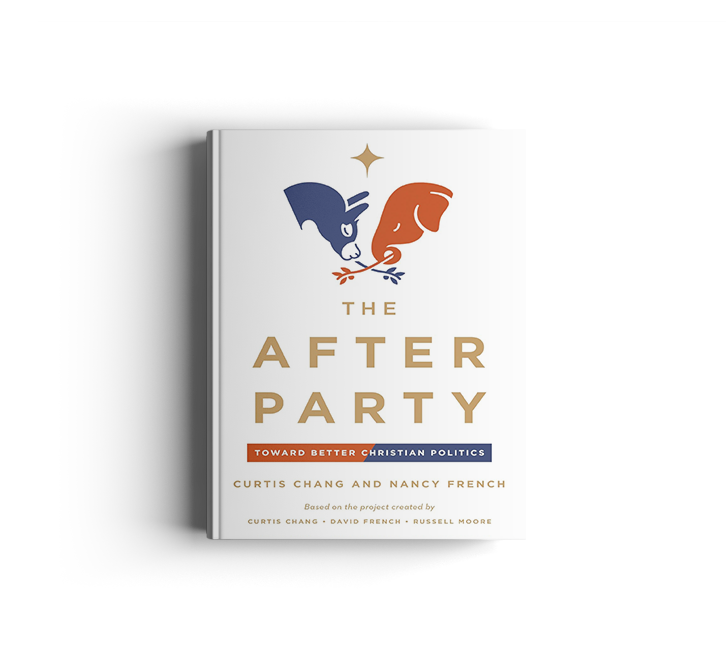If you’ve not picked up on it yet, we’re in a presidential election year, which appears headed toward just another series of increasingly contentious and divisive presidential bids. Divisive among not just the talking heads, but among families and friends and churches and towns. Political seasons don’t have to be like this. Politics doesn’t have to be like this, according to Curtis Chang, who is an author, executive director of Redeeming Babel, and collaborator with opinion writer David French and theologian Russell D. Moore on curriculum-turned-movement-turned-book The After Party: Toward Better Christian Politics. Chang explained a better way to Common Good:
The what and the how of it
Christians have too much emphasized the what of politics. The what of an ideology, a party, even a particular politician. We are calling Christians to pay more attention to the how of politics. Jesus is much clearer on the how of spiritual values and of practices that govern our relationships. If you read the Sermon on the Mount, you are going to be hard-pressed to draw a straight line to a specific border-control policy, for instance. You can try, but it’s going to be a fuzzy and contested line, and people will draw it differently. But you can draw a very straight line to values like love your enemy, do not curse, do not harbor malice in your heart. These are hows we need to recapture as the center of our politics.
Relationships over policy
Politics has caused relationships to rupture — and family, extended family members, friends, and neighbors to disappear from one another — even among fellow Christians. That is a very dangerous phenomenon, both because it undermines our broader social cohesion, and because it undermines the very message of the gospel. Paul always writes that the unity of Christians across the dividing lines of society — neither Greek nor Jew, slave nor free, etc. — is a central testimony of the gospel. You can add to that Republican and Democrat. That is the dividing line, the wall of hostility, that governs our society and increasingly governs our churches.
Zealots with tax collectors, left with right
It’s an old story. Jesus entered into human life in a specific moment in the first-century politics of Israel. You had one party, the Zealots, that was hell-bent on opposing and overthrowing Rome by any means necessary. Around the time Jesus was a boy, Judas the Galilean led the Zealots in a violent revolt against Rome and any Jew who was collaborating with Rome. Who are the arch-collaborators with Rome at that point? Tax collectors. In Matthew 11, Jesus creates a small group around him, and who is in that small group? Simon the Zealot and Matthew the tax collector. In his inner circle, Jesus holds them together — and not only during his life, but by all accounts after his death. Something happened in Jesus’ life, death, and resurrection that created a new community capable of unity together across the most polarized differences of that age.
Sacred vs secular catechesis
If you remain silent about a subject, you are ceding the formation of your people to other sources. We have allowed Fox News and MSNBC to be our catechists on politics more than we have Jesus, and we will be shaped by that secular vision of partisan conflict if we do not offer an alternative vision. But the alternative vision is not to split the middle on this position and that position. We’re trying to broaden the understanding of politics beyond simply which candidate you vote for or what positions you hold. Politics is the polis, right? The city. How do we relate to one another? How are we going to live together? The how matters significantly. You can actually disagree on the what of politics, if you have a shared how.






